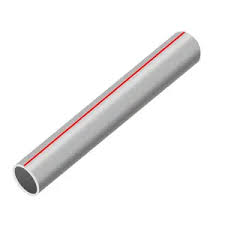Aug . 07, 2024 16:20 Back to list
High-Density Polyethylene Irrigation Pipe Fittings Manufacturer for Efficient Agricultural Solutions
The Importance of HDPE Irrigation Pipe Fittings in Modern Agriculture
In the realm of modern agriculture, efficient irrigation systems play a pivotal role in ensuring the optimal growth of crops. Among the various materials used in irrigation systems, High-Density Polyethylene (HDPE) has emerged as a preferred choice due to its durability, resistance to corrosion, and flexibility. Central to the effectiveness of HDPE irrigation systems are the fittings manufactured in specialized factories dedicated to producing high-quality products that meet the rigorous demands of agricultural applications.
What is HDPE?
High-Density Polyethylene (HDPE) is a thermoplastic polymer made from petroleum. Known for its high strength-to-density ratio, HDPE is highly durable, resistant to various chemicals and UV radiation, and has excellent low-temperature impact strength. These properties make it an ideal choice for irrigation pipes that need to withstand harsh environmental conditions while providing a reliable water supply to farmland.
The Role of Irrigation Pipe Fittings
Irrigation pipe fittings are the components that connect different sections of pipe and enable the distribution of water throughout the irrigation system. These fittings include couplings, elbows, tees, reducers, and valves, each specifically designed to help farmers create a customized irrigation layout that suits their unique crop and soil conditions. Properly designed and manufactured HDPE fittings ensure that water flows efficiently and without leakage, minimizing waste and maximizing agricultural productivity.
The Manufacturing Process of HDPE Fittings
The production of HDPE irrigation fittings requires a combination of advanced technology and stringent quality control measures. Factories specializing in HDPE fittings typically utilize processes such as injection molding and extrusion. During the injection molding process, melted HDPE is injected into molds that create the desired fitting shape, with precise control over dimensions and tolerances. Extrusion, on the other hand, involves forcing melted HDPE through a die to create hollow tubes or shapes that can be cut to specific lengths as needed.
Ensuring quality during manufacturing is crucial. Factories adhere to international standards such as ISO and ASTM to guarantee that their products can withstand extreme pressures and environmental factors. Regular testing for stress resistance, UV stability, and chemical compatibility ensures that the fittings will perform reliably in the field.
hdpe irrigation pipe fittings factory

Advantages of HDPE Fittings in Irrigation
The use of HDPE fittings offers numerous advantages for modern irrigation systems
1. Durability HDPE fittings resist corrosion and breakage, outlasting traditional materials like PVC or metal fittings.
2. Flexibility The flexibility of HDPE means it can adapt to different environments and temperatures without cracking, ideal for dynamic agricultural settings.
3. Cost-Effectiveness While the initial investment might be higher, the long-lasting nature of HDPE reduces the need for frequent replacements, leading to lower costs over time.
4. Environmentally Friendly HDPE is a recyclable material, making it a sustainable choice for irrigation applications.
5. Efficiency The smooth internal surface of HDPE fittings minimizes friction loss, promoting optimal water flow and reducing power consumption in pumping systems.
Conclusion
As agriculture evolves to meet the challenges of climate change and increasing food demands, the importance of efficient irrigation systems cannot be overstated. HDPE irrigation pipe fittings play a critical role in this equation, allowing for reliable and effective water management. The specialized factories that produce these fittings not only contribute to agricultural efficiency but also promote sustainable practices through the use of environmentally friendly materials. As more farmers adopt HDPE solutions, they can ensure a healthier, more productive farming future.
-
High-Quality PVC Borehole Pipes - Durable Pipes from Leading PVC Manufacturer
NewsJun.10,2025
-
High-Quality PVC Borehole Pipes Types of Pipes by Leading PVC Manufacturer
NewsJun.10,2025
-
Durable Screen Pipes & HDPE-PVC Connectors Expert Solutions
NewsJun.10,2025
-
Premium HDPE Conduit Pipes Durable & Corrosion-Resistant
NewsJun.10,2025
-
Premium HDPE Elbows Durable Corrosion-Resistant Piping Solutions
NewsJun.09,2025
-
Premium HDPE Electrofusion Fittings Leak-Free Solutions
NewsJun.09,2025

